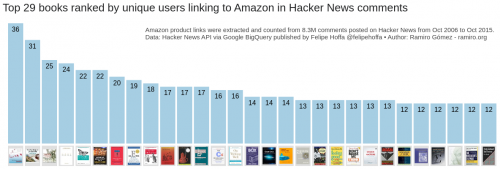Back in February 2009, Paul Graham shared the lessons he’d learned from a side project of his – social news website Hacker News. I’ve read it back then, of course, but once again someone pointed out to me the value of that article and I went back. It is a must read for any web developer or even anyone who participates in online discussions, social networks, or just maintains a blog. Here is my favorite section that explains bad comments.
There are two main kinds of badness in comments: meanness and stupidity. There is a lot of overlap between the two—mean comments are disproportionately likely also to be dumb—but the strategies for dealing with them are different. Meanness is easier to control. You can have rules saying one shouldn’t be mean, and if you enforce them it seems possible to keep a lid on meanness.
Keeping a lid on stupidity is harder, perhaps because stupidity is not so easily distinguishable. Mean people are more likely to know they’re being mean than stupid people are to know they’re being stupid.
The most dangerous form of stupid comment is not the long but mistaken argument, but the dumb joke. Long but mistaken arguments are actually quite rare. There is a strong correlation between comment quality and length; if you wanted to compare the quality of comments on community sites, average length would be a good predictor. Probably the cause is human nature rather than anything specific to comment threads. Probably it’s simply that stupidity more often takes the form of having few ideas than wrong ones.
Whatever the cause, stupid comments tend to be short. And since it’s hard to write a short comment that’s distinguished for the amount of information it conveys, people try to distinguish them instead by being funny. The most tempting format for stupid comments is the supposedly witty put-down, probably because put-downs are the easiest form of humor. [5] So one advantage of forbidding meanness is that it also cuts down on these.
Bad comments are like kudzu: they take over rapidly. Comments have much more effect on new comments than submissions have on new submissions. If someone submits a lame article, the other submissions don’t all become lame. But if someone posts a stupid comment on a thread, that sets the tone for the region around it. People reply to dumb jokes with dumb jokes.
Maybe the solution is to add a delay before people can respond to a comment, and make the length of the delay inversely proportional to some prediction of its quality. Then dumb threads would grow slower.
